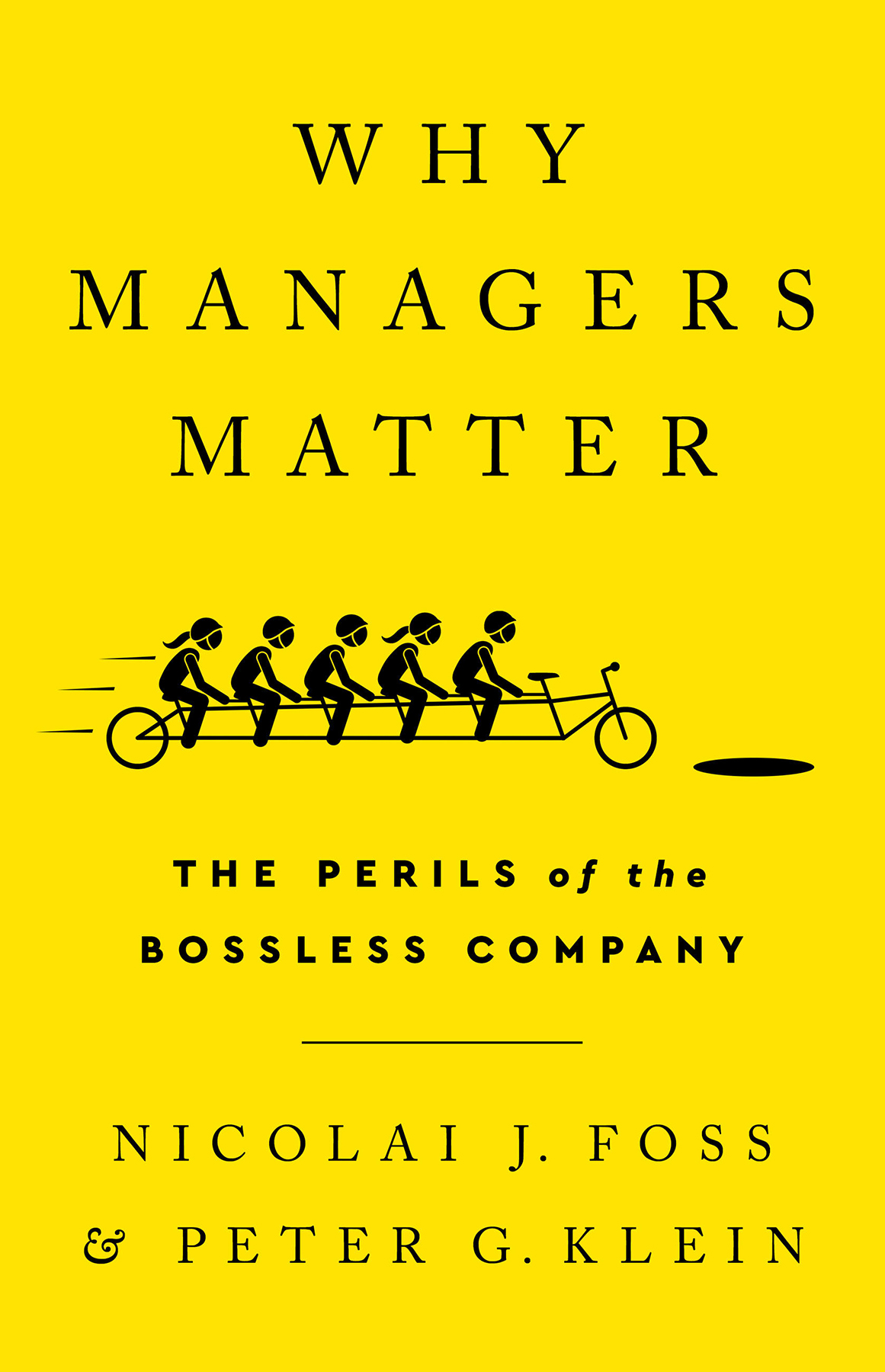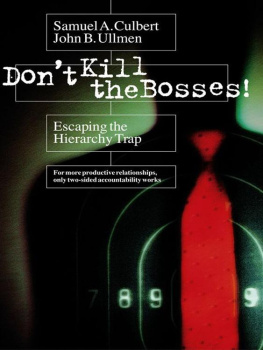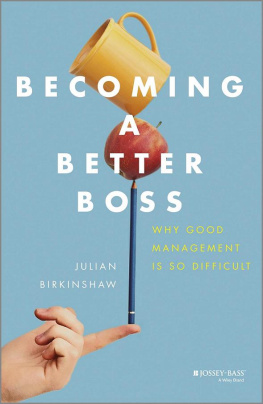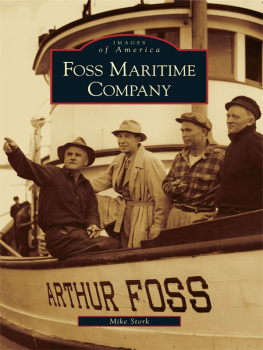
Copyright 2022 by Nicolai J. Foss and Peter G. Klein
Cover design by Pete Garceau
Cover illustration iStock/Getty Images
Cover copyright 2022 Hachette Book Group, Inc.
Hachette Book Group supports the right to free expression and the value of copyright. The purpose of copyright is to encourage writers and artists to produce the creative works that enrich our culture.
The scanning, uploading, and distribution of this book without permission is a theft of the authors intellectual property. If you would like permission to use material from the book (other than for review purposes), please contact permissions@hbgusa.com. Thank you for your support of the authors rights.
PublicAffairs
Hachette Book Group
1290 Avenue of the Americas, New York, NY 10104
www.publicaffairsbooks.com
@Public_Affairs
First Edition: October 2022
Published by PublicAffairs, an imprint of Perseus Books, LLC, a subsidiary of Hachette Book Group, Inc. The PublicAffairs name and logo is a trademark of the Hachette Book Group.
The Hachette Speakers Bureau provides a wide range of authors for speaking events. To find out more, go to www.hachettespeakersbureau.com or call (866) 376-6591.
The publisher is not responsible for websites (or their content) that are not owned by the publisher.
Library of Congress Cataloging-in-Publication Data
Names: Foss, Nicolai J., 1964 author. | Klein, Peter G., author.
Title: Why managers matter : the perils of the bossless company / Nicolai J. Foss and Peter G. Klein.
Description: First edition. | New York : PublicAffairs, [2022] | Includes bibliographical references and index. |
Identifiers: LCCN 2022006749 | ISBN 9781541751040 (hardcover) | ISBN 9781541751033 (ebook)
Subjects: LCSH: Management. | Executives. | Organizational behavior. | Organizational effectiveness.
Classification: LCC HD31.2 .F67 2022 | DDC 658dc23/eng/20220216
LC record available at https://lccn.loc.gov/2022006749
ISBNs: 9781541751040 (hardcover), 9781541751033 (ebook)
E3-20220802-JV-NF-ORI
The classic 1956 film The Man in the Gray Flannel Suit features Gregory Peck as Tom Rath, a junior executive struggling to rise to the top of the fictional United Broadcasting Corporation. Tom is a World War II veteran struggling to adjust to civilian life while balancing work and family demands. Tom doesnt like his job or his bosses and doesnt care about the business. But he wants the money, influence, and respect that come from being a corporate big shot. As he works his way up the corporate ladder, he starts to rebel against the bland conformity of office culturerepresented by the clothing that gives the story its titleand of 1950s suburban life. Toms struggle to retain his individuality and autonomy, as well as to keep his family together and supported, while navigating the corporate hierarchy makes for a compelling narrative.
The popular recent TV series Mad Men takes its inspiration from the corporate world of that era, with its cool hats, two-martini lunches, office politics, and family intrigue lurking beneath the quiet suburban landscape. Fans loved the retro look and sharply drawn characters, but few would want a return to the corporate hierarchy on display in Mad Men in their own jobs today.
By contrast, consider the workplace depicted in the 2010 blockbuster The Social Network . Voted number 27 among the 100 best films of the twenty-first century by 117 film critics from around the world, the movie deals with all-American themes like entrepreneurship and lawsuits, telling the story of the founding of Facebook and the controversies that followed. A striking feature of the culture of Facebook in the early days is its flatnessfriends and fellow students working together without bosses, coming together in fluid groups to solve problems.
These two movies depict completely different ways of organizing and managing work. They are iconic exactly because in the popular imagination they represent different eras with all that implies about different tastes, work, and personal relationships. The flat, networked, team-based organization is juxtaposed against the traditional managerial hierarchyor the square versus the tower in the words of the historian Niall Ferguson. In the network organization you do things and make others followsometimes moving fast and breaking things, as Facebook CEO Mark Zuckerberg described his philosophybecause youre better, smarter, or more charismatic. In the hierarchical organization things move when the person above you in the organizational chart allows you to move them.
THE BOSSLESS COMPANY NARRATIVE
An influential genre of business books, articles, lectures, and college and business school courses teach today that the classic managerial hierarchy is dead, or at least dyingand good riddance. They arent just saying that reform, restructuring, and reimagining are often necessary. Indeed, some companies have excessive corporate fat: layers could often be cut, and empowering employees might increase productivity. This genrewhich we call the bossless company narrativehas something far more radical to say. The title of one article, First, Lets Fire All the Managerspublished in, of all places, the Harvard Business Review may have been adopted for dramatic effect, but it also clearly communicates this genres message.
Humanocracy: Creating Organizations as Amazing as the People Inside Them by best-selling management writers Gary Hamel and Michele Zanini is the most recent in a decades-long string of books telling us that The book has sold more than 400,000 copies worldwide and may well be the most influential management book of the decade. Reflecting its New Agey subtitle, this book offers a new soulful (yes, really) way of running a businessone with no performance targets or job descriptions and very little budgeting. Instead, it features soulful practices that, of course, make organizations extraordinarily productive and highly purposeful!
The basic thrust of the genre is that while bosses are still around, the less control they exercise the better. Their job is to preach corporate culture and values, balance the interests of competing stakeholders, and keep regulators and critics at bay, as when 181 top CEOs from the US Business Roundtable pledged in August 2019 to be good corporate citizens and not to privilege the interests of shareholders over other elements of society. What the Harvard historian Alfred D. Chandler Jr. called the visible hand of management should give way to worker autonomy, self-organizing teams, outsourcing, and an egalitarian office culture. Today this is the dominant business narrative. Countless blogs and articles in the Harvard Business Review either directly promote it or more indirectly reflect it. The narrative is sometimes used to advertise highly popular self-management approaches like Agile and Holacracy.
To be sure, the workplace changed a lot between the time of The Man in the Gray Flannel Suit and that of The Social Network . In the corporate world, one traditional, hierarchical corporate giant after another fell, or at least became a smaller and less important player. Everyone knows the Kodak story, and other well-known examples include Xerox, Blockbuster, Nokia, JCPenney, Yahoo, Myspace, Macys, Hitachi, Polaroid, Toshiba, RadioShack, Netscape, and ToysRUs. Most of these firms failed because they didnt notice deep-seated changes in technologies or, if they noticed, didnt act quickly enough. Unfortunately, the business press and the gurus alike have rather uniformly ascribed these failures to the hierarchical nature of these companies, indicting hierarchy in general, rather than the specific form it took in (some of) these companies.












